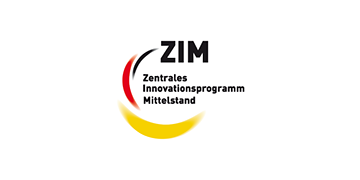| Theme | Automation, Forming technology, Process monitoring |
|---|---|
| Project title | Development of a retrofit system for screw presses for (partial) automation and minimization of setup time and development of a sensor array for the first-time recording of elementary process variables, for example the forming force (AutoPress) |
| Project duration | 01.10.2022 – 30.09.2024 |
| Download | |
| Press release |
Screw presses are a commonly used method for manufacturing pressed parts, with a total number of over 500 production lines. The quality of the setup of screw presses currently depends primarily on the experience of the employee. In addition to employee know-how, the long set-up time is also a challenge, especially for small and medium-sized enterprises (SMEs) with low production volumes and a high degree of flexibility.
Together with JOBOTEC GmbH, IPH is developing a novel automated setting procedure for the process parameters of a screw press as part of this research project. The first direct measurement of the forming force and a novel optimization algorithm for the setup and process control of screw presses will reduce the setup time and prevent a loss of know-how. Users receive a system that they can operate easily and adapt individually to their screw press.
Publications about the project
The economic production in the high-wage country Germany is particularly challenging for hot forging processes due to high energy costs. High scrap rates lead to an inefficient use of energy and financial resources. At the same time, the complete documentation of relevant process parameters for comprehensive quality monitoring is becoming increasingly important. Previous approaches to detect reject parts and component quality monitoring are often downstream processes or only allow a limited consideration of individual process aspects. In this work, an inline process data acquisition is examined using the example of a directly driven screw press, which aims to detect process faults at an early stage. To this end, a suitable measurement concept was first developed and significant target variables were identified with the help of a statistical experimental design. Based on the CRISP-DM process model, it was possible to show that the detection of process faults is possible. Suitable AI algorithms and their optimal hyperparameters were determined, with which deviations in the semi-finished product position, the forming energy or the semi-finished product material used could be successfully detected. Furthermore, it was possible to demonstrate that the numerical determination of the cutting length of the semi-finished product is possible on the basis of the collected process data. Based on the developed algorithms, a software for direct connection to the control system of the screw press was implemented, whereby an inline detection of process faults could be realized.
Bulk forming, process monitoring, automation, retrofit
Artificial intelligence (AI) can be used to reliably recognise errors, reduce defective parts and increase component quality. In the 'AutoPress' project, researchers have developed a system of sensors and AI that recognises 95 to 98 per cent of all process deviations.
Artificial intelligence, AI, process monitoring, error detection
Increasing the service life and process reliability of systems plays an important role in terms of sustainable and economical production. Especially in the field of energy-intensive bulk forming, low scrap rates and long tool lifetimes are business critical. This article describes a modular method for AI-supported process monitoring during hot forming within a screw press. With this method, the following deviations can be detected in an integrated process: the height of the semi-finished product, the positions of the die and the position of the semi-finished product. The method was developed using the CRISP-DM standard. A modular sensor concept was developed that can be used for different screw presses and dies. Subsequently a hot forming-optimized test plan was developed to examine individual and overlapping process deviations. By applying various methods of artificial intelligence, a method for process-integrated detection of process deviations was developed. The results of the investigation show the potential of the developed method and offer starting points for the investigation of further process parameters.
Process monitoring, Wear, Hot forming, Predictive maintenance, Quality management
In the research project “AutoPress”, the IPH – Institut für Integrierte Produktion Hannover gGmbH and Jobotec GmbH are jointly striving to develop an automated process control of screw presses. By retrofitting and applying an optimization algorithm, the energy demand is to be reduced and the component quality increased.
digitalization, forming technology, production technology
An elementary factor for influencing the process quality and the energy requirement of an energy-bound forming machine is the stored work capacity. At present, the forming energy is calculated via the work energy introduced into the system. Here, factors such as spindle torsion or frictional resistance are only taken into account roughly.
Within the framework of the research project "Development of a retrofit system for friction screw presses for automation and minimization of the set-up time and development of a sensor array for the first-time recording of elementary process variables such as the forming force" (AutoPress), which is funded by the Industrielle Gemeinschaftsforschung (IGF), the IPH - Institut für Integrierte Produktion Hannover gGmbH and JOBOTEC GmbH are striving for an automated process control of screw presses and are providing initial findings in this regard.
retrofit, forging technology, digitization
Jobs
-
Tool- and Mold-Making, Industry 4.0, Artificial Intelligence, Automation, Forming technology, Digitalisation
Student job, Bachelor thesis, Project thesis, Internship
-
Industry 4.0, Artificial Intelligence, Automation, Forming technology, Digitalisation, Process monitoring
Student job
-
Industry 4.0, Artificial Intelligence, Automation, Forming technology, Digitalisation
Internship
Intern in the Process Technology department / AI / Programming
-
Industry 4.0, Artificial Intelligence, Automation, Forming technology, Digitalisation, Process monitoring
Master thesis, Bachelor thesis, Project thesis
Thesis on the topic of artificial intelligence/process monitoring
-
Artificial Intelligence, Automation, Forming technology, Digitalisation, Process monitoring
Student job, Master thesis, Bachelor thesis, Project thesis






